Why is the US government on the brink of a shutdown? What will it mean?
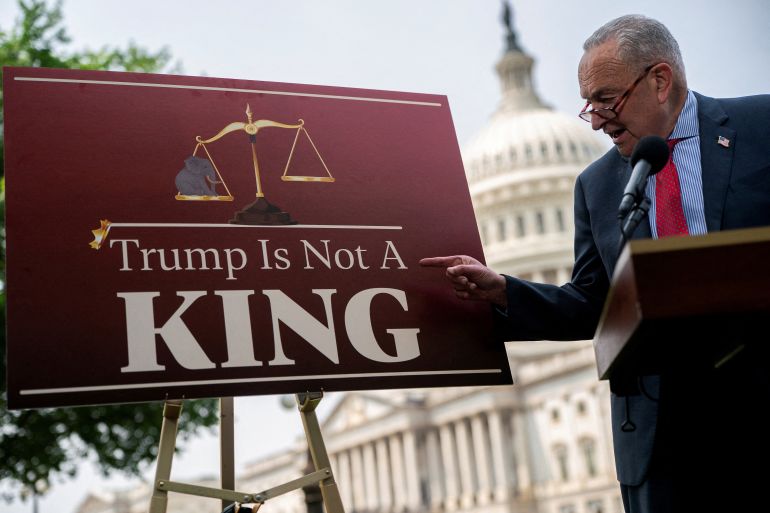
The United States government will shut down on Wednesday if Democrats and Republicans in Congress cannot reach an agreement on a vital funding bill. The shutdown could temporarily halt some US government services and put the salaries of government employees on hold – or even end them altogether. Recommended Stories list of 4 itemsend of list While it has been normal practice to place staff on “furlough” during previous government shutdowns – meaning they are reinstated and receive back pay once the government is up and running again – this time, the Trump administration is threatening to fire people permanently. Why might the government shut down? The new fiscal year for the federal government begins on October 1, but Congress has not agreed on a necessary short-term funding bill. Republicans control both chambers of Congress. In the Senate, Republicans hold 53 seats and Democrats, 47. The Republicans have fallen short of the 60 votes needed to pass legislation. The Senate majority leader is Republican John Thune, and the minority leader is Democrat Chuck Schumer. In the House of Representatives, Republicans hold 220 seats and Democrats hold 212. The House speaker is Republican Mike Johnson, the majority leader is Republican Steve Scalise, and the minority leader is Democrat Hakeem Jeffries. The disagreement is over a short-term spending bill introduced by the Republicans, lays out the funding of government operations until November 21. Without it, the government cannot function. What is the dispute about, exactly? The main stumbling block is continued funding for the Affordable Care Act, also called Obamacare, which is popular with voters and enables low-income people to access healthcare, John Owens, an emeritus professor of US government and politics at the University of Westminster in London, told Al Jazeera. Advertisement Democrats are refusing to back the Republican bill unless Republicans undo recent cuts to Medicaid enacted under Trump’s “One Big Beautiful Bill” in July. Democrats additionally want to extend special tax credits that reduce the cost of health insurance for Americans. These credits are set to expire later this year. Therefore, Senate Democrats have proposed a range of alternatives, including a seven- to 10-day funding bill, along with other possible measures that could run concurrently, two Senate Democratic sources told the Reuters news agency on Monday. Republicans have rejected these proposals, however, and, so far, neither side shows any sign of backing down. Earlier this week, US President Donald Trump cancelled talks with Democratic leaders, deeming their demands “unserious”. As a result, Congress is in limbo and is not expected to vote on anything this week. On Monday, congressional leaders left a meeting with Trump without reaching a deal. Schumer and Jeffries have blamed the Republicans for the impending shutdown. Hours after that meeting, Trump posted an AI-generated, “deepfake” video of Schumer and Jeffries with fabricated audio on his Truth Social platform. It depicts Jeffries wearing a large sombrero and sporting a handlebar moustache while Schumer says, “If we give all these illegal aliens healthcare, we might be able to get them on our side so they can vote for us.” The video has been condemned by Democrats as a racist dogwhistle alluding to Mexicans. “It’s a disgusting video and we’re gonna continue to make clear bigotry will get you nowhere,” Jeffries said. “We are fighting to protect the healthcare of the American people in the face of an unprecedented Republican assault.” US Senate Minority Leader Chuck Schumer [File: Nathan Howard/Reuters] How likely is it that there will be a government shutdown? The disagreement over healthcare funding is far from being resolved. Furthermore, Owens explained that any Senate agreement must also be approved by the House, where Trump’s party has a slim, hard-right majority closely aligned with him. However, some Republicans in the House are also fearful of the effects of the healthcare cuts in their districts. “With midterm elections due next November, there is tremendous pressure, particularly on electorally vulnerable Republican senators who are also under pressure from Trump to support his cuts,” Owens said. “Whether the current impasse results in a shutdown remains to be seen. Its effects will depend on its length and the ultimate willingness of Trump and his party, and the Congressional Democrats to reach some kind of compromise.” Advertisement Trump himself does not seem optimistic about resolving the impasse. “I just don’t know how we’re going to solve this issue,” CBS News reported, quoting him, on Sunday. US Vice President JD Vance also warned that the government is heading for a shutdown, blaming Democrats. “I think we’re headed into a shutdown because the Democrats won’t do the right thing,” Vance told reporters after the meeting on Monday. If Congress does not agree on a short-term funding bill by midnight on Tuesday (04:00 GMT on Wednesday), the shutdown will prompt federal closures at 12:01am on Wednesday (04:01 GMT). On Tuesday, the crypto-based prediction market, Polymarket, placed the odds of a government shutdown at 86 percent. What happens during a government shutdown? A government shutdown happens when a lapse in funding forces parts of the government federal agencies with non-essential functions to cease operations. Under US law, if the government shuts down, agencies are required to “furlough” – suspend or discharge – their “non-excepted” employees. Once the shutdown is over and operations resume, furloughed employees receive their backdated pay, due to a 2019 bill passed by Congress enshrining this into law. An “excepted employee” is a US federal civil service employee who “protects life and property”. While excepted employees stay on the job during a government shutdown, they do not get paid until the shutdown ends. Each agency develops its own plan for the shutdown, deciding which employees will stay and who will be furloughed. Owens estimated that about 900,000 federal workers would be laid off if the shutdown happens. Some government work continues during a shutdown. Members of the armed forces, FBI, CIA and air traffic controllers continue to work. Programmes funded by mandatory spending, such as Social Security and Medicare, also continue
Afghanistan imposes internet blackout: What has the effect been so far?
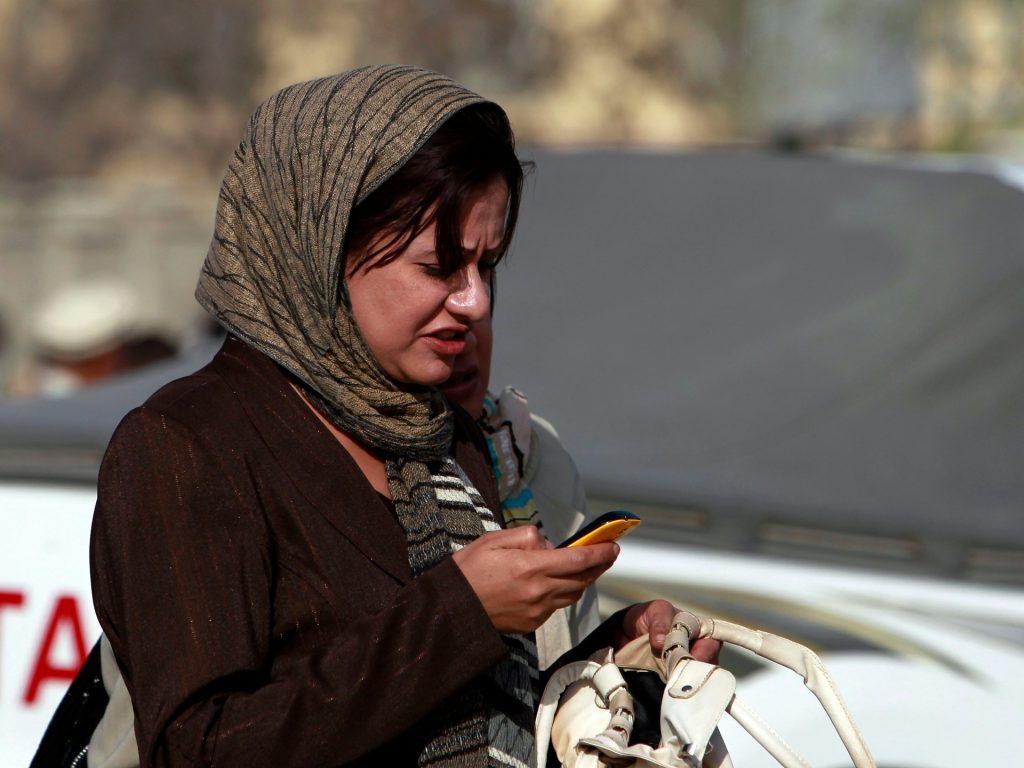
A nationwide telecoms shutdown has been imposed in Afghanistan, as part of a Taliban crackdown on “immoral activities”. Netblocks, a global internet watchdog, said on Monday that multiple networks in Afghanistan had been disconnected. Telephone services had also been limited, resulting in what Netblocks described as a “total internet blackout” in the nation of 43 million people. Recommended Stories list of 4 itemsend of list Connectivity was cut in phases on Monday, with the final stage affecting telephone services. In the past, the Taliban have voiced concern about online pornography. And earlier this month, authorities cut fibre-optic links to some provinces, with officials citing morality concerns. “The incident is likely to severely limit the public’s ability to contact the outside world,” the group added. This is the first time that the whole of Afghanistan has faced an internet blackout under the hardline Islamist government. It risks cutting off the country, which is in desperate need of humanitarian assistance, just weeks after a devastating, magnitude-6 earthquake in the east of the country. Which telecoms services are being restricted? Earlier this month, the Taliban began to close down internet services. On September 16, the Balkh provincial spokesperson stated that fibre-optic internet had been completely banned in the northern province. “This measure was taken to prevent vice,” he wrote on social media. At about the same time, restrictions were also reported in the northern provinces of Badakhshan and Takhar, as well as in Kandahar, Helmand, and Nangarhar in the south. Advertisement Cloudflare Radar – an international internet traffic monitor – said Kabul had suffered the sharpest municipal drop in internet connectivity, followed by the western city of Herat, and Kandahar in the south. On Monday, online TV channel TOLOnews reported that the authorities had set a one-week deadline for the shutdown of 3G and 4G internet services for all mobile phones, leaving only the 2G mobile network active. Telephone services have also been compromised, as they are routed over the internet and share the same fibre-optic cables. What is likely to be worst-affected? Internet and communications Tolo warned viewers of disruption to its news services and added that the shutdown would affect its own internal operations. Elsewhere, both The Associated Press (AP) and AFP news agencies said they were unable to contact their bureaus in the capital city, Kabul. On Tuesday, Al Jazeera attempted to contact people in Kunar, Jalalabad and Kabul by WhatsApp and by phone from outside Afghanistan, but no messages or calls got through. Afghan citizens living abroad, such as rights activist and journalist Nilofar Ayoubi, report that they have been unable to communicate with family members. I haven’t been able to reach my mother in Afghanistan for the past nine hours due to the internet blackout. Tonight, I feel just as hopeless and powerless as I did on the night of August 15 , 2021 .. https://t.co/yX4ycP4sMK — Nilofar Ayoubi 🇦🇫 (@NilofarAyoubi) September 29, 2025 Flights Some flights from Kabul airport have been disrupted. According to flight tracking service Flightradar24, nine flights scheduled to depart from or arrive at Kabul International Airport on Tuesday were cancelled. Other flights went ahead as planned. Even before the Taliban takeover in August 2021, the Afghan economy was fragile. Some 47 percent of the country’s population were living below the poverty line. Unemployment stood at 11.7 percent in 2020, and 34.3 percent of people with jobs were living on less than $1.90 per day, Sheela Samimy, an economist and former director in the Afghan Ministry of Finance, told Al Jazeera at the time. A telecoms shutdown could well exacerbate Afghanistan’s economic struggles. Internet platforms – such as Aseel, an online platform enabling Afghan artisans – mostly women – to sell handmade jewellery, carpets and pottery to customers around the world while setting their own prices – are expected to be badly affected by the internet blackout as vendors and customers become unable to connect to these sites. Advertisement Aseel also enabled people from overseas to donate humanitarian aid via its website. Afghans who earn a living via social media platforms such as YouTube will also be affected. Financial and healthcare services Diplomatic officials told the BBC that the internet shutdown could affect banking systems across the country, in addition to business operations and hospital services. What does the Taliban say about all this? AFP reported that a government official told it on Monday that the fibre-optic network it relies on for operations would be shut down. “Eight to nine thousand telecommunications pillars” would be shut down, he said, adding that the blackout would last “until further notice”. Since seizing power in 2021, the Taliban has imposed numerous restrictions on society in line with its strict interpretation of Islamic law. But strictures ordered by the leadership, based in Kandahar, have grown increasingly hardline recently. Authorities banned Afghan women working for the United Nations from entering its offices in September. This follows prohibitions on women in numerous jobs, while girls were prohibited from attending high school in 2021. Women are now also banned from higher education. Many women and girls have since relied on online classes provided by educators abroad or by charitable organisations. This latest clampdown on the internet means these opportunities are now also under threat. The Taliban says it respects women’s rights in line with its interpretation of Islamic law. But women’s rights activist Sanam Kabiri, an Afghan living in Pakistan, said: “The Taliban are using every tool at their disposal to suppress the people. “What else do these ignorant men of another century want from our oppressed people?” Will this hamper ongoing earthquake rescue efforts in Afghanistan? On August 31, a devastating magnitude 6.0 earthquake in eastern Afghanistan killed more than 2,200 people and injured some 3,600, according to the Taliban authorities. As rescue efforts persist, hundreds of thousands of people have been displaced. Women have remained largely absent from earthquake clear-up operations, in large part because the Taliban has barred them from working for nongovernmental organisations operating in the
Palestinians in Gaza react to Trump plan on ending Israel’s war
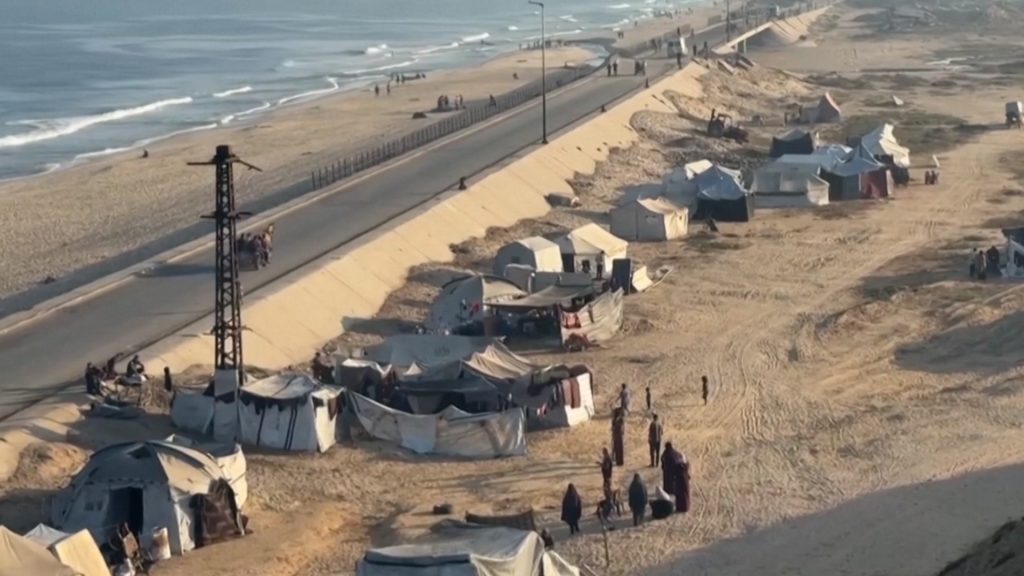
NewsFeed ‘They want to turn it into Trump resorts’. Palestinians in Gaza have been reacting to US President Donald Trump’s 20-point plan to bring an end to Israel’s war on the enclave. Published On 30 Sep 202530 Sep 2025 Click here to share on social media share2 Share Adblock test (Why?)
Trump’s Gaza peace plan welcomed by Arab and Islamic countries, the West
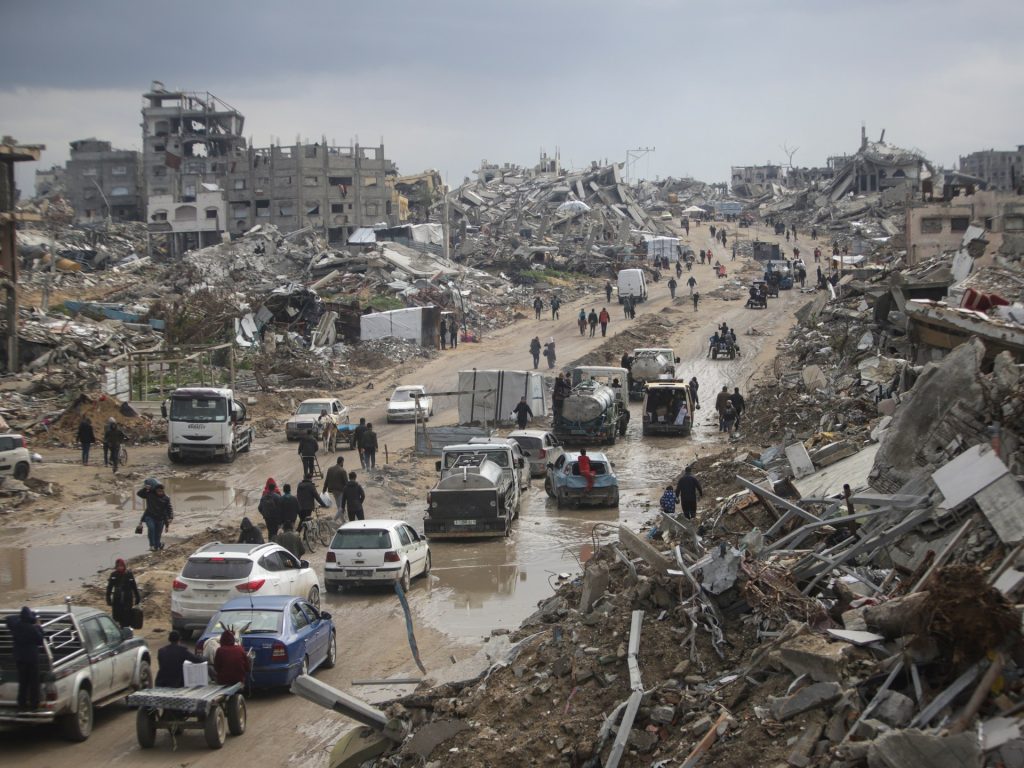
United States President Donald Trump has proposed a 20-point peace plan to end the war in Gaza after holding talks with Israeli Prime Minister Benjamin Netanyahu, who welcomed the proposal. The new proposal, which calls for the disarmament of Hamas, has been welcomed by the Palestinian Authority (PA), which governs in the occupied West Bank, along with some regional Arab countries. Recommended Stories list of 3 itemsend of list Hamas says that it is studying the US proposal “in good faith”, while the Palestinian Islamic Jihad (PIJ) group says that the plan is a “recipe to blow up the region”. Below are the reactions from regional and Western countries. Palestine The PA said that it welcomes the “sincere and tireless efforts to end the war on Gaza, and affirms its confidence in his ability to find a path to peace”. “It reiterates its shared commitment to working with the United States, regional countries, and partners to end the war on Gaza through a comprehensive agreement that guarantees the delivery of adequate humanitarian aid to Gaza, the release of hostages and prisoners,” it said in a statement published by the Palestinian afa news agency. It also called for the “establishment of mechanisms that protect the Palestinian people, ensure respect for the ceasefire and security for both parties, prevent the annexation of land and the displacement of Palestinians, halt unilateral actions that violate international law, release Palestinian tax funds, lead to a full Israeli withdrawal, and unify Palestinian land and institutions in the Gaza Strip and the West Bank, including East Jerusalem,” it said. “It also ends the occupation and paves the way for a just peace based on the two-state solution, with an independent and sovereign State of Palestine living side by side with the State of Israel in security, peace, and good neighborliness, in accordance with international law,” the statement added. Advertisement The PIJ, a Palestinian armed group fighting alongside Hamas, called Trump’s plan a “recipe for continued aggression against the Palestinian people. Through this, Israel is attempting – via the United States – to impose what it could not achieve through war,” the group said in a statement. “Therefore, we consider the American-Israeli declaration a formula for igniting the region.” Egypt, Indonesia, Jordan, Pakistan, Qatar, Saudi Arabia, Turkiye UAE The foreign ministers of the above countries released a joint statement welcoming Trump’s “sincere efforts to end the war in Gaza, and assert their confidence in his ability to find a path to peace”. “Along these lines, the ministers welcome the announcement by President Trump regarding his proposal to end the war, rebuild Gaza, prevent the displacement of the Palestinian people and advance a comprehensive peace, as well as his announcement that he will not allow the annexation of the West Bank,” the statement added. The statement went on to say that the countries are willing to work with the “United States to end the war in Gaza through a comprehensive deal that ensures unrestricted delivery of sufficient humanitarian aid to Gaza, no displacement of the Palestinians, the release of hostages, a security mechanism that guarantees the security of all sides, full Israeli withdrawal, rebuilds Gaza and creates a path for a just peace on the basis of the two state solution, under which Gaza is fully integrated with the West Bank in a Palestinian state in accordance with international law as key to achieving regional stability and security”. Turkish President Recep Tayyip Erdogan Erdogan has hailed Trump for his efforts to broker a ceasefire. “I commend US President Donald Trump’s efforts and leadership aimed at halting the bloodshed in Gaza and achieving a ceasefire,” Erdogan said in a statement. He added that Turkiye would continue to support the diplomatic process, and is committed to helping establish “a just and lasting peace acceptable to all parties”. Pakistani Prime Minister Shehbaz Sharif Sharif posted on X that he welcomed the plan. “I am also convinced that durable peace between the Palestinian people and Israel would be essential in bringing political stability and economic growth to the region,” he wrote. “It is also my firm belief that President Trump is fully prepared to assist in whatever way necessary to make this extremely important and urgent understanding to become a reality. “I laud President Trump’s leadership and the vital role played by Special Envoy Steve Witkoff in bringing an end to this war.” Advertisement He added: “I also strongly believe that the implementation of the two state proposal is essential to ensure lasting peace in the region.” Israeli opposition politician Benny Gantz Gantz said on X: “I laud President Trump’s extraordinary efforts to secure a hostage deal and safeguard Israeli security. Now is the time for initiative.” “President Trump’s plan must be implemented, our hostages brought home, Israel’s operational freedom maintained, Hamas’ terror regime in Gaza replaced and moderate Arab States instated instead as I proposed a year and a half ago. “We must not miss out on the opportunity to bring back the hostages, safeguard our security and catalyse a ‘Strategic Flip’ expanding the circles of regional normalisation,” he added. France “I expect Israel to engage resolutely on this basis. Hamas has no choice but to immediately release all hostages and follow this plan,” French President Emmanuel Macron said in a statement on X. “These elements must pave the way for in-depth discussions with all relevant partners to build a lasting peace in the region, based on the two-state solution and on the principles endorsed by 142 UN member states, at the initiative of France and Saudi Arabia.” United Kingdom Prime Minister Keir Starmer said: “We call on all sides to come together and to work with the US Administration to finalise this agreement and bring it into reality. Hamas should now agree to the plan and end the misery, by laying down their arms and releasing all remaining hostages.” The controversial former prime minister, Tony Blair, called the plan “bold and intelligent”, adding that it “can end the war, bring
Have Trump and Netanyahu really agreed on a Gaza peace plan? Key takeaways
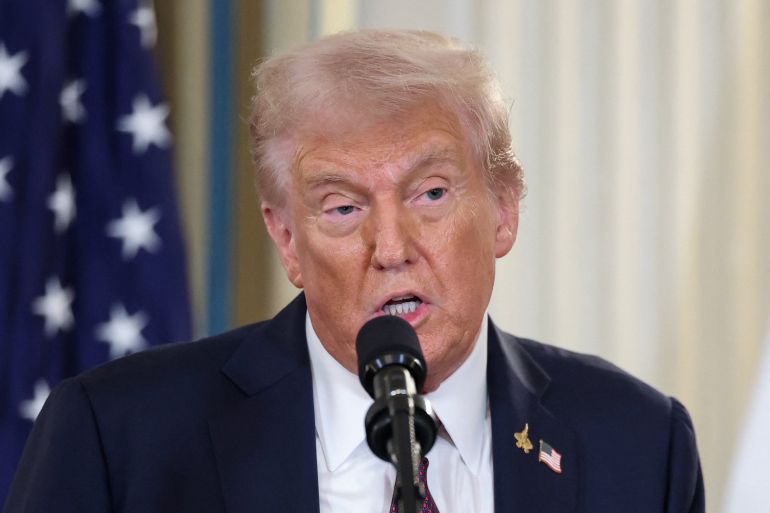
After meeting with Israeli Prime Minister Benjamin Netanyahu on Monday, US President Donald Trump said the leaders were “close” to achieving peace in the Middle East. “At the very least, at a minimum very, very close,” Trump said during a joint news conference at the White House. He outlined his new 20-point plan to end Israel’s war on Gaza and secure the release of Israeli captives still being held in the Palestinian territory. Diplomatic sources have told Al Jazeera that Hamas’s negotiating team is studying Trump’s plan to end the war. Here are the key takeaways: Trump thanks Netanyahu for agreeing to the plan “Thank you very much, everybody. This is a big, big day, a beautiful day, potentially one of the great days ever in civilisation,” Trump said as the news conference started. “And I’m not just talking about Gaza. Gaza is one thing, but we’re talking about much beyond Gaza. The whole deal, everything getting solved. It’s called peace in the Middle East,” he added. “Prime Minister Netanyahu and I have just concluded an important meeting on many vital issues, including Iran, trade, the expansion of the Abraham Accords, and, most importantly, we discussed how to end the war in Gaza, but it’s just a part of the bigger picture, which is peace in the Middle East, and let’s call it eternal peace in the Middle East,” Trump said. He thanked Netanyahu and leaders from the Middle East, as well as Turkiye, Indonesia, Pakistan and Europe. US President Donald Trump [Jonathan Ernst/Reuters] Trump introduces his plan Trump introduced his plan to end the war, noting that many countries had contributed to its development. Advertisement “This afternoon, after extensive consultation with our friends and partners throughout the region, I’m formally releasing our principles for peace, which people have really liked, I must say,” Trump said. He went on to outline some of the central commitments in the plan: “Under the plan, Arab and Muslim countries have committed, and in writing, in many cases … to demilitarise Gaza, and that’s quickly. Decommission the military capabilities of Hamas and all other terror organisations. Do that immediately,” he said. “We’re relying on the countries… to deal with Hamas. And I’m hearing that Hamas wants to get this done, too. That’s a good thing,” he added. “The United States will establish a dialogue between Israel and the Palestinians to agree on a political horizon for PEACEFUL and prosperous co-existence.” https://t.co/Vk7K5YNIhj — The White House (@WhiteHouse) September 29, 2025 He then expanded on dismantling Hamas’s operational capacity. “And destroy all terror infrastructure … including the tunnels, weapons and production facilities. There’s a lot of production facilities that we’re destroying. It’ll also help train local police forces in the areas that we’re discussing, right now, in particular in and around Gaza, working with the new transitional authority in Gaza.” Turning back to the role of Arab and Muslim nations, Trump emphasised the need for collaboration. “Arab and Muslim nations need to be allowed the chance to fulfil these commitments of dealing with Hamas. They have to deal with them because they were the one group that we have not dealt with. I haven’t dealt with them.” “But the Arab countries are going to, and Muslim countries, are going to be dealing with Hamas. And I believe they’ve already been there. I think they probably have an understanding. They haven’t, maybe, mentioned that, but I would imagine they do. Otherwise, they wouldn’t have gone as far as they’ve gone.” Governing Gaza Under Trump’s plan, a “technocratic” leadership of Palestinians, unaffiliated with any political faction, will govern Gaza on a day-to-day basis after the end of the war. But that Palestinian leadership will be selected not by the Palestinian people, but by a new international body that would oversee the implementation of the peace plan. Trump said this organisation, called the “board of peace”, would be tasked with ensuring the agreement’s success and bringing together key regional and international leaders. He said that the oversight body would be chaired by him, personally. Advertisement “It would be headed by a gentleman known as President Donald J Trump of the United States. That’s what I want, some extra work to do, but it’s so important that I’m willing to do it,” Trump said. Trump explained that the body would also include other leaders. “We’ll do it right … We’ll have a board. One of the people that wants to be on the board is the UK former Prime Minister Tony Blair. Good man, very good man. And some others.” “Hamas and other terrorist factions will play no role in the board,” Trump added. Gaza’s security and long-term governance Trump’s plan speaks of an international stabilisation force (ISF) that the US and its Arab and other partners will set up to oversee the security of Gaza after Hamas is demilitarised. “This force will be the long-term internal security solution. The ISF will work with Israel and Egypt to help secure border areas, along with newly trained Palestinian police forces,” the plan outlines. But Netanyahu, standing next to Trump at the news conference, suggested that Israel has other ideas. “Israel will retain security responsibility, including a security perimeter, for the foreseeable future,” Netanyahu said. “Gaza will have a peaceful civilian administration that is run neither by Hamas nor by the Palestinian Authority, but by those committed to a genuine peace with Israel.” Netanyahu’s comments are also at odds with Trump’s plan on Gaza’s long-term governance. The plan suggests that the Palestinian Authority can take over Gaza’s governance in the long run if it implements a series of reforms. Hamas still needs to respond “So now, it’s time for Hamas to accept the terms of the plan that we’ve put forward today. And again, this is a different Hamas than we were dealing with, because I guess over 20,000 have been killed,” Trump said. “Their leadership has been killed three times over. So, you’re really dealing with different people than we’ve
LIVE: Israel kills 39 in Gaza as Hamas reviews Trump’s proposal to end war
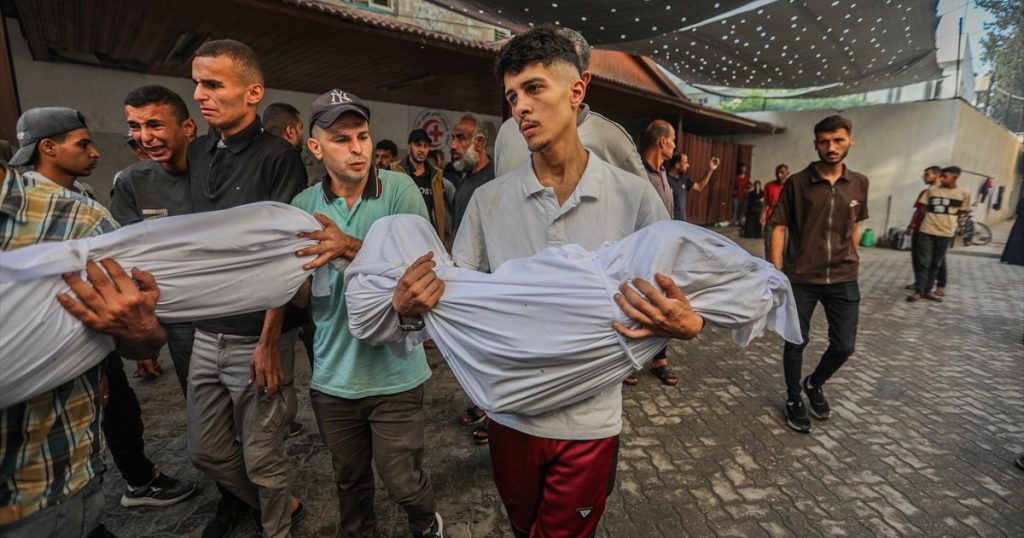
blinking-dotLive updatesLive updates, Palestinians in Gaza said the Trump proposal raises questions around implementation as Israeli attacks continued on Monday. Published On 30 Sep 202530 Sep 2025 Click here to share on social media share2 Share Adblock test (Why?)
ICC Women’s World Cup 2025: Teams, schedule, tickets, India vs Pakistan

EXPLAINER From tournament format to venues and top players to watch, here’s Al Jazeera’s guide to the Women’s Cricket World Cup. Published On 29 Sep 202529 Sep 2025 Click here to share on social media share2 Share Women’s cricket will take centre stage when eight nations compete in the International Cricket Council’s (ICC) Women’s World Cup 2025 in India and Sri Lanka from Tuesday. Australia are the defending champions and record seven-time winners of the one-day international (ODI) competition , but in-form India are favourites to break their World Cup drought at home. Recommended Stories list of 4 itemsend of list Here’s everything you need to know about the tournament: When are the first match and final of the Women’s World Cup? The World Cup begins when India host Sri Lanka in Guwahati on Tuesday and will conclude with the final on Sunday, November 2. Why will some World Cup games be played in Sri Lanka if India is the official host? While India was confirmed as the tournament’s official host earlier this year, Sri Lanka was added as a neutral venue for games involving Pakistan. It came as a result of an ICC-brokered agreement between India and Pakistan that allows both countries the option of playing their games at a neutral venue for a tournament hosted by either South Asian nation. The neighbours have not visited each other for a bilateral cricket competition in 13 years and shared an intense four-day military and aerial conflict in May. Guwahati is set to host the first semifinal but the venue will change to Colombo if Pakistan qualify for the last four. Navi Mumbai will host the second semifinal, which will be India’s designated last-four clash if they qualify. The venue for the final can also be moved to Colombo should Pakistan enter their first Women’s World Cup final. Advertisement Where are the venues of the Women’s World Cup? Dr DY Patil Sports Academy, Navi Mumbai, India Barsapara Cricket Stadium, Guwahati, India Holkar Stadium, Indore, India Dr YS Rajasekhara Reddy ACA-VDCA Cricket Stadium, Visakhapatnam, India R Premadasa Stadium, Colombo, Sri Lanka Which teams are in the Women’s World Cup, and how did they qualify? Australia Bangladesh England India New Zealand Pakistan South Africa Sri Lanka India qualified on the basis of their hosting rights, while Australia, England, New Zealand, South Africa and Sri Lanka qualified as the top five teams in the ICC Women’s Championship 2022-25. Bangladesh and Pakistan entered the tournament by finishing first and second in the World Cup qualifiers. Chamari Athapaththu will have her eyes on the prize when she leads Sri Lanka at the World Cup at home [Ishara S Kodikara/AFP] When and where is the India vs Pakistan match in the Women’s World Cup? The archrivals will face-off on Sunday at the R Premadasa Stadium in Colombo. India have beaten Pakistan in all ODI matches played between the two nations since 2005, with their last win coming at the ICC World Cup 2022 in South Africa. What’s the format and schedule of the Women’s World Cup? The tournament’s main round will be played in the round-robin format between September 30 and October 26. The top four teams at the end of the group stage will qualify for the semifinals on 29 and 30 October. The final will be played on November 2. The updated match schedule for #CWC25 is out now 🏆 All the action starts on 30 September! 🗓️ ✍️: https://t.co/EArFubvvlg pic.twitter.com/yqYfPbHzbM — ICC Cricket World Cup (@cricketworldcup) August 22, 2025 Which teams are favourites to win the Women’s World Cup? Australia: The Southern Stars’ supremacy in women’s cricket is undeniable, with their record seven titles in the ODI World Cup and six in the T20 World Cup proof of their status as the world’s best team. Alyssa Healy’s team is packed with the world’s top batters, bowlers and all-rounders and will be the favourite to defend the title they won in South Africa. India: The hosts came very close to lifting their first World Cup trophy in 2017, when they lost the final to England, and will look to go one better on home turf. India enjoy the services of arguably the world’s best batter in Smriti Mandhana, as well as some in-form bowlers and all-rounders. They have won 10 of their last 14 ODIs, including three against higher-ranked opponents. Who are the players to watch at the Women’s World Cup? Advertisement Smriti Mandhana (India) Deepti Sharma (India) Chamari Athapaththu (Sri Lanka) Sophie Ecclestone (England) Megan Schutt (Australia) Ellyse Perry (Australia) Laura Wolvaardt (South Africa) Amelia Kerr (New Zealand) Sidra Amin (Pakistan) Nahida Akter (Bangladesh) Smriti Mandhana has scored four ODI hundreds in 2025 [File: Pankaj Nangia/Getty Images] Which are the five best group-stage matches of the World Cup? India vs Pakistan on October 5 at 09:30 GMT India vs Australia on October 12 at 09:30 GMT India vs England on October 19 at 09:30 GMT Australia vs England on October 22 at 09:30 GMT Australia vs South Africa on October 25 at 09:30 GMT Who are the past champions of the Women’s World Cup? 1973: England 1978: Australia 1982: Australia 1988: Australia 1993: England 1997: Australia 2000: New Zealand 2005: Australia 2009: England 2013: Australia 2017: England 2022: Australia What’s the prize money for the Women’s World Cup? Total prize money for the tournament: $13.88m Champions: $4.48m Runners-up: $2.24m Losing semifinalists: $1.12m each Fifth and sixth place finishers: $700,000 each Seventh and eighth place finishers: $280,000 each. How can I buy tickets for the Women’s World Cup? Tickets for all group-stage games are available on the ICC’s ticketing website, and prices start at $1. Schoolchildren gather around the ICC Women’s Cricket World Cup 2025 Trophy in Colombo [Ishara S Kodikara/AFP] Adblock test (Why?)
Moldova election results: Who won and did the diaspora play a role?
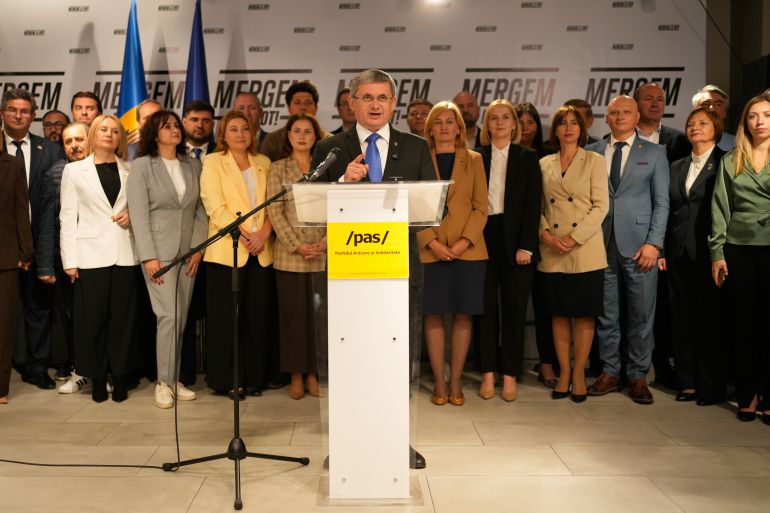
Moldova’s ruling pro-West governing party won a majority in the country’s tense Sunday elections, beating pro-Russian parties by a wide margin amid reported attempts to violently disrupt the vote and allegations of interference by Russia. Results from more than 99 percent of the polling stations counted by Monday noon showed the Party of Action and Solidarity (PAS) clearly in the lead, despite analysis and opinion polls before the vote suggesting that pro-Russian parties would come close and possibly upset the ruling party’s parliamentary majority. Recommended Stories list of 4 itemsend of list The small country is located between Ukraine and Romania. One of Europe’s poorest states, it was part of the Soviet Republic until 1991. The breakaway, semi-autonomous region of Transnistria, which lies along the border with Ukraine, has traditionally supported ties with Russia. As a result, in recent years, Moldova has emerged as a battleground for influence between Russia and the West. In a September 9 speech at the European Parliament, Moldovan President Maia Sandu, founder of PAS, declared that this election would be “the most consequential” in the country’s history. For Moldovans, the elections represented a crucial turning point. The small country with Russia’s war in Ukraine on its doorstep could either continue on its current path towards European Union membership, or it could fall back into the old fold of Russian influence. Ultimately, despite reports of pro-Russian groups threatening violence, with at least three people arrested in Moldova, and several bomb scares reported at polling booths abroad, the Moldovan diaspora played a key role in delivering a pro-EU victory. Igor Grosu, president of Moldova’s parliament and leader of the pro-EU Party of Action and Solidarity, speaks to the media after the parliamentary election, in Chisinau, Moldova, Monday, September 29, 2025 [Vadim Ghirda/AP] What was the outcome of Moldova’s election? Nearly all votes cast at polling stations had been counted by Monday. Some 1.6 million people cast their votes, making about 52.2 percent of eligible voters, which is higher than in previous elections. Advertisement The ruling pro-EU PAS, led by parliament president and PAS cofounder, Igor Grosu, won 50.16 percent of the vote and about 55 of the 101 seats in parliament, translating to a comfortable majority government, according to the country’s election agency. The current prime minister, Dorin Recean, appointed by Sandu in February 2023, is expected to retain his position. The pro-Russian Patriotic Electoral Bloc (BEP), an alliance of four parties led by former president and Russian ally Igor Dodon, came in a far second with 24.19 percent of the vote. The party won 26 seats in parliament. Two parties within the bloc, Heart of Moldova and Moldova Mare, were banned from participating in the election amid allegations they had received illicit funding from Russia. In third place was the Alternative Party, which is also pro-EU with 7.97 percent of the vote, securing eight parliamentary seats. Our Party, a populist group, and the conservative Democracy at Home party, respectively, won just more than 6 percent and 5 percent of the vote. That allowed them entry into parliament for the first time with 6 seats each. What had polls predicted? Opinion polls had suggested a much tighter race between the ruling PAS and the BEP, which was predicted to come a close second. That scenario would have disrupted PAS’s present control of parliament, potentially forcing it into an uncomfortable coalition with the BEP, and slowing down pro-EU reforms. Before the Sunday polls, politicians and their supporters on both sides of the debate campaigned intensely on the streets and on TV, but also on online platforms such as TikTok, in an attempt to reach young people who make up about a quarter of the population. What were the key issues? EU accession was the single most important issue on the ballot this election. Under President Sandu, Moldova applied to join the EU in early 2022, just after Russia’s February invasion of Ukraine. Chisinau’s goal, alongside a better economy, has been to obtain security guarantees like its neighbour, Romania, which is a member of the EU and of the North Atlantic Treaty Alliance (NATO). In July 2022, the EU granted Moldova – as well as Ukraine – candidate status, on the condition that democracy, human and minority rights, and rule of law reforms are made. European Commission President Ursula von der Leyen at the time declared that the future of Moldova was in the EU. However, while President Sandu’s PAS is eager to achieve Moldova’s EU membership by 2028 when her term expires, she has accused Moscow of attempting to scupper this plan in order to continue wielding influence over a country it once controlled. Advertisement Russia has considerable support in Moldova, and backs a breakaway, autonomous enclave – Transnistria, located along its border with Ukraine. About 1,500 Russian troops are present there, and the enclave’s government has requested Russian annexation several times. In a referendum vote last October, just more than 50 percent of Moldovans voted “yes” to joining the EU, a tight margin of victory that was seen as a predictor of this week’s parliamentary elections. At the time, President Sandu blamed “dirty interference” from Russia for her camp’s thin victory. A woman holds Moldovan and EU flags during a pro-EU rally in Chisinau, Moldova, Monday, September 29, 2025, after the parliamentary election [Vadim Ghirda/AP] Did Russia interfere in these elections? During the run-up to Moldova’s election, the authorities have repeatedly accused Moscow of conducting a “hybrid war” – offline and online – to help pro-Russian parties to win the vote. Moscow denies meddling in Moldovan politics. Russia is specifically accused of being behind a widespread “voter-buying” operation – through which voters are bribed to vote for particular parties – and of launching cyberattacks on Moldovan government networks throughout the year. The authorities have also claimed that Moscow illicitly funds pro-Russia political parties. Two pro-Russia parties – Heart of Moldova and Moldova Mare – were barred from the vote on Friday over allegations of illegal financing
Video: Moldova’s president says election results show ‘Russia failed’
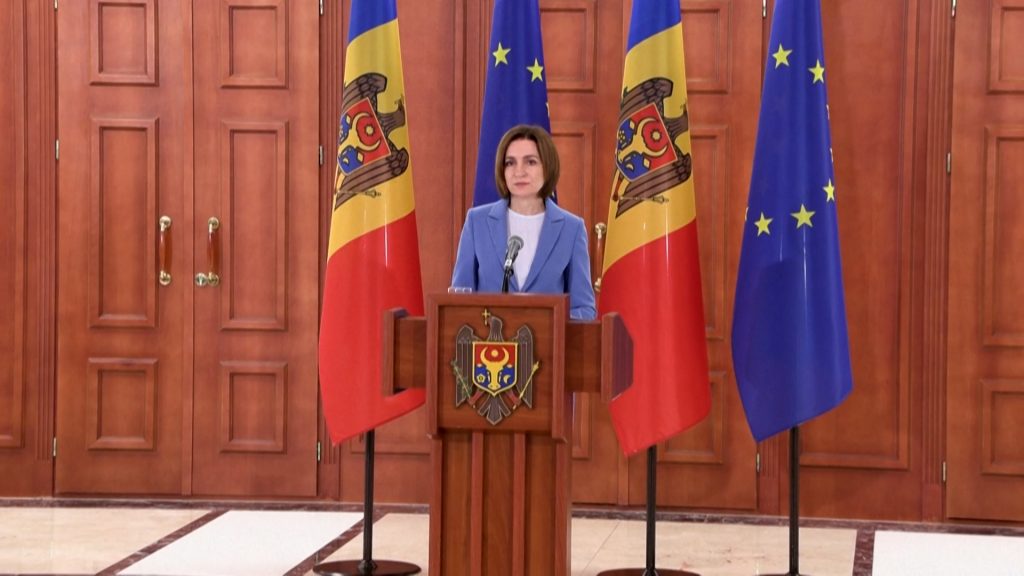
NewsFeed Moldova’s President Maia Sandu hailed her pro-EU party’s victory in parliamentary elections despite allegations of widespread Russian interference, saying the results showed Russia had ‘failed’. Published On 29 Sep 202529 Sep 2025 Click here to share on social media share2 Share Adblock test (Why?)
China and North Korea agree to resist ‘hegemony’, Foreign Ministry says
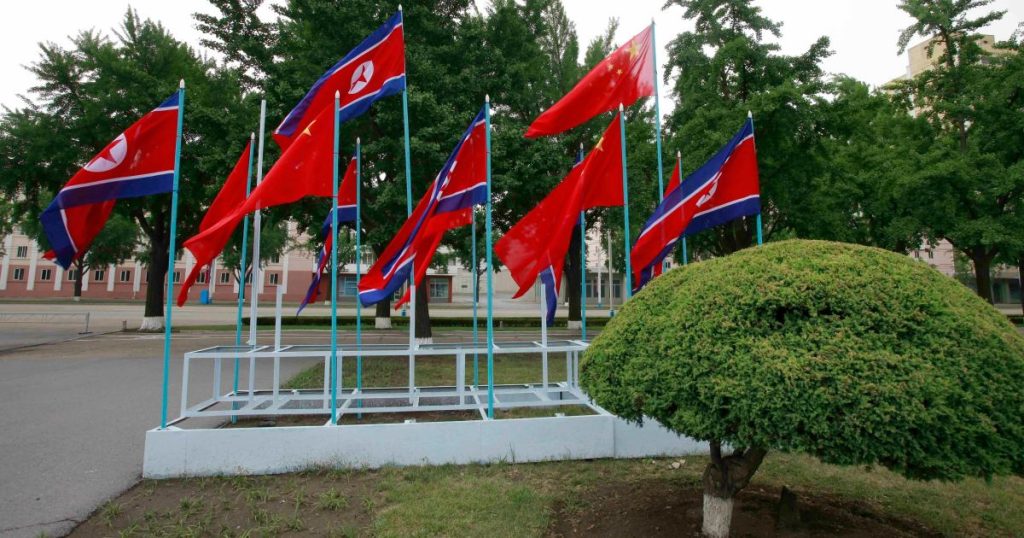
Chinese Foreign Minister Wang Yi holds talks with his North Korean counterpart, Choe Son Hui, in Beijing. Published On 29 Sep 202529 Sep 2025 Click here to share on social media share2 Share China and North Korea have pledged to work together to counter “hegemonism” and “unilateralism” in international affairs, the Chinese Ministry of Foreign Affairs has said, in a veiled reference to the countries’ confrontations with the United States. Chinese Foreign Minister Wang Yi held talks with his North Korean counterpart, Choe Son Hui, in Beijing on Sunday, weeks after North Korean leader Kim Jong Un travelled to China to join an event marking the anniversary of Japan’s defeat in World War II. Recommended Stories list of 4 itemsend of list “China is willing to strengthen coordination and collaboration with North Korea on international and regional affairs, oppose all forms of hegemonism, and protect their shared interests and international fairness and justice,” Wang told Choe, according to a readout by the Chinese Foreign Ministry. Choe, in turn, told Wang that North Korea viewed China’s concept of a “community with a shared future for mankind”, and its Global Governance Initiative, as important contributions to the “promotion of a multipolar world”, according to the ministry. “North Korea strongly supports these initiatives and is willing to work closely with China in multilateral collaboration to jointly resist unilateralism and power politics and promote the establishment of a more equitable and just world order,” Choe said, according to the readout. “North Korea also wishes the Chinese people greater achievements under the leadership of the Communist Party of China through unity and struggle.” Choe cited Kim as saying that the “bonds of friendship” between Pyongyang and Beijing “cannot be altered,” and that their relations should be developed “in line with the demands of the times”, the state-run Korean Central News Agency said. Advertisement Beijing is embroiled in a fierce rivalry with Washington, which spans sectors ranging from trade to artificial intelligence. Pyongyang has been at odds with Washington for decades over its illicit nuclear and ballistic missile programmes. Wang and Choe’s talks came after Chinese President Xi Jinping, North Korea’s Kim and Russian President Vladimir Putin appeared together earlier this month at a military parade to mark the 80th anniversary of the end of World War II. Many observers saw this gathering as a challenge to US dominance in international affairs. Adblock test (Why?)

